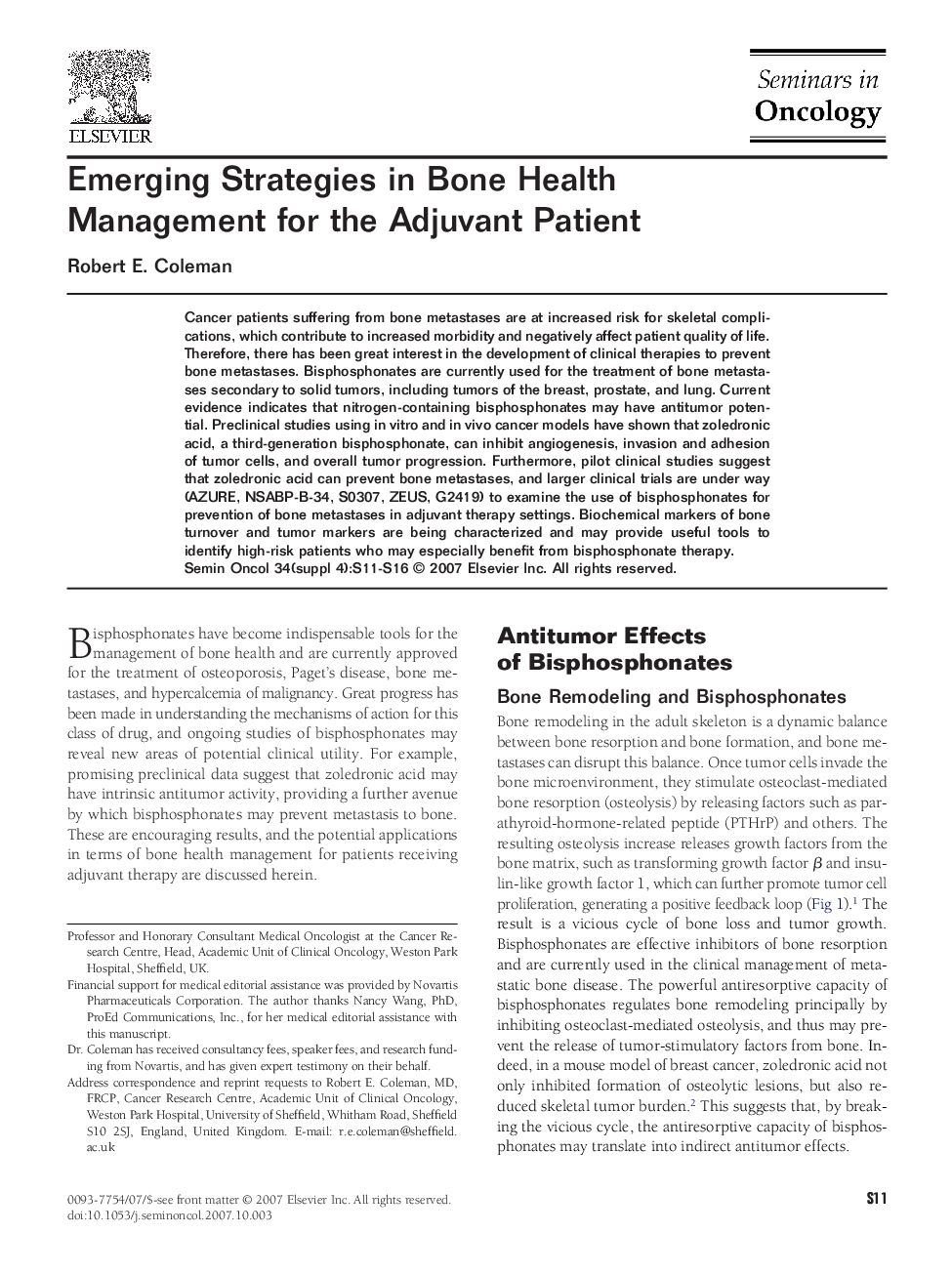| Article ID | Journal | Published Year | Pages | File Type |
|---|---|---|---|---|
| 2163024 | Seminars in Oncology | 2007 | 6 Pages |
Abstract
Cancer patients suffering from bone metastases are at increased risk for skeletal complications, which contribute to increased morbidity and negatively affect patient quality of life. Therefore, there has been great interest in the development of clinical therapies to prevent bone metastases. Bisphosphonates are currently used for the treatment of bone metastases secondary to solid tumors, including tumors of the breast, prostate, and lung. Current evidence indicates that nitrogen-containing bisphosphonates may have antitumor potential. Preclinical studies using in vitro and in vivo cancer models have shown that zoledronic acid, a third-generation bisphosphonate, can inhibit angiogenesis, invasion and adhesion of tumor cells, and overall tumor progression. Furthermore, pilot clinical studies suggest that zoledronic acid can prevent bone metastases, and larger clinical trials are under way (AZURE, NSABP-B-34, S0307, ZEUS, G2419) to examine the use of bisphosphonates for prevention of bone metastases in adjuvant therapy settings. Biochemical markers of bone turnover and tumor markers are being characterized and may provide useful tools to identify high-risk patients who may especially benefit from bisphosphonate therapy.
Related Topics
Life Sciences
Biochemistry, Genetics and Molecular Biology
Cancer Research
Authors
Robert E. Coleman,
